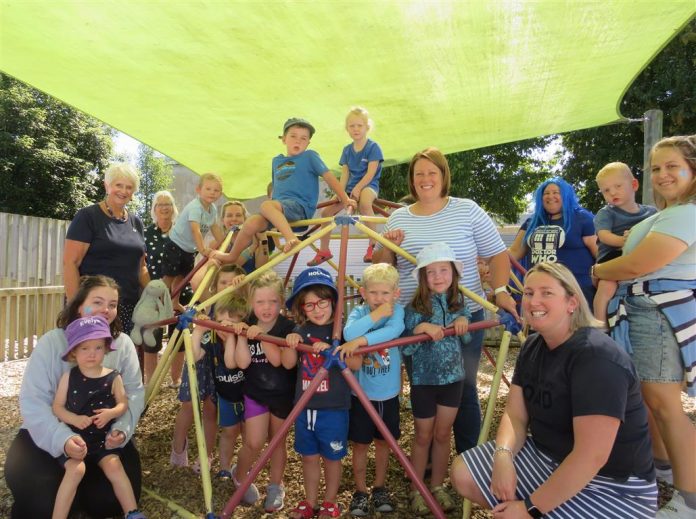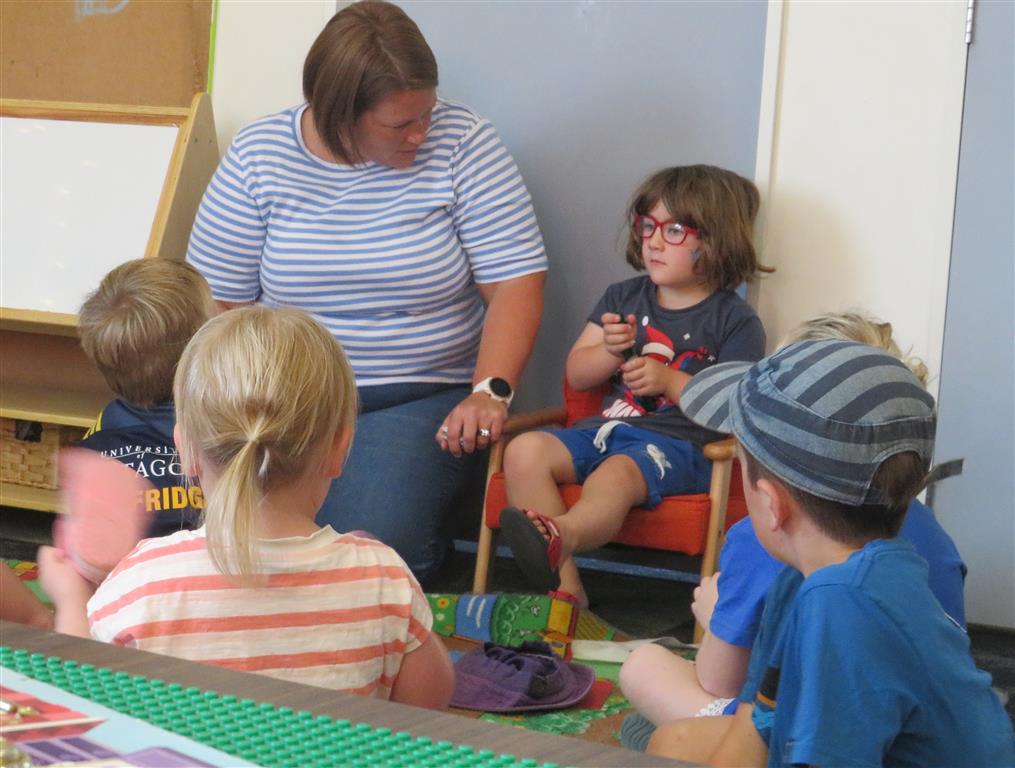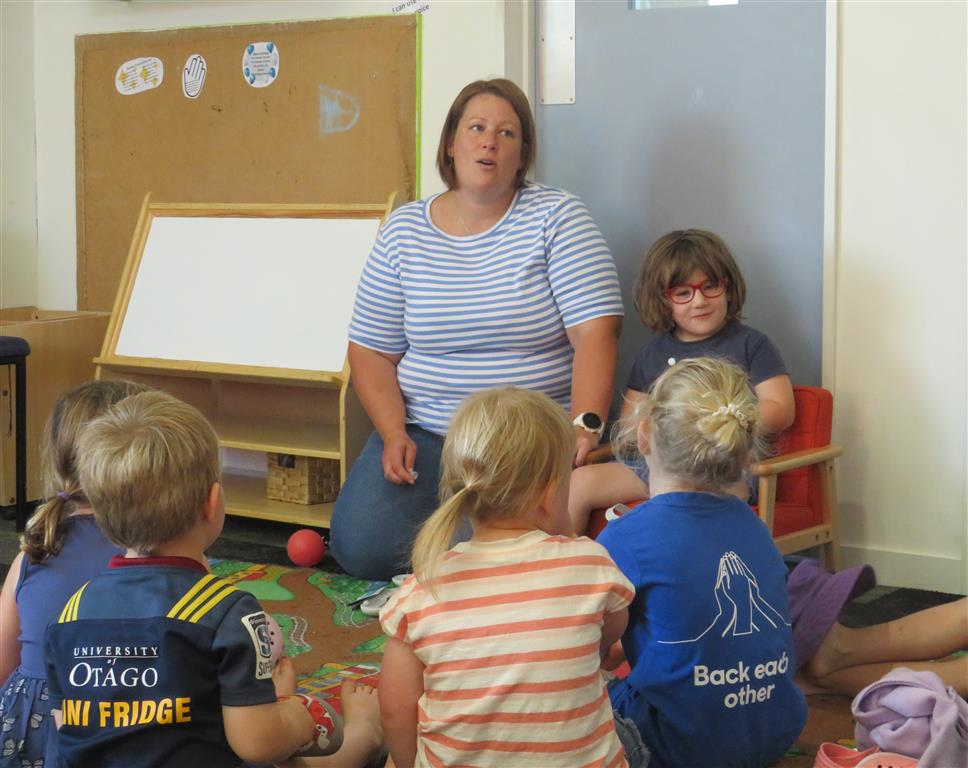
Four-year-old Holly has given her preschool mates a glimpse into her daily ritual living with Turner Syndrome.
Holly was joined in the discussion by her mother Kate Beaumont-Smith.
Kate is on the Turner Syndrome national support group; she is joint treasurer and in charge of grants and fundraising.
The pair wanted to raise awareness of the syndrome, and had the full support of Holly’s teachers and preschool mates at Leap Ahead early childhood centre in Hinds who dressed in blue – Holly’s favourite colour – and gave a gold coin donation.
Holly and Kate sat with the preschoolers and told them about the syndrome Holly lives with. Holly’s grandmothers, Grandma Lesley and Granny Briony were also present.

Holly may have no outwardly visible signs but Turner Syndrome affects her growth. It affects around one in 2000 female babies born. Many others do not make it full term, Kate said.
Internationally just two percent of babies with Turner Syndrome arrive in the world.
She is a happy young girl, behaving as expected but gets daily growth hormone leg injections to help her growth. It is fully funded by Pharmac.
‘‘It helps Holly grow so she is as tall as everybody else,’’ Kate said.
The preschoolers got up close to Holly’s treatment equipment, and asked questions.
Holly is under the medical care of Dr Martin de Bock, in Christchurch, who monitors her development. She has been having treatment for Mosaic Turner Syndrome since she was 11-months-old.
Dr de Bock gives high fives, which Holly likes, Kate said.

Holly’s growth is now on par with the development of her older sister, who does not have the syndrome. She has an annual hand X-ray to tell when she finishes growing.
The treatment is likely to stop when Holly stops growing in her teenage years; then puberty kicks in with its own set of challenges.
Turner Syndrome is a genetic disorder affecting females.
It involves a missing or abnormal X chromosome which happens randomly. The missing X chromosome looks like a butterfly under a microscope so those with Turner Syndrome are affectionately called butterflies. In support the preschoolers and teachers had blue butterflies painted on their checks.
The Turner Syndrome Association of New Zealand helps girls, women and their families connect as a way to support and learn from each other.



